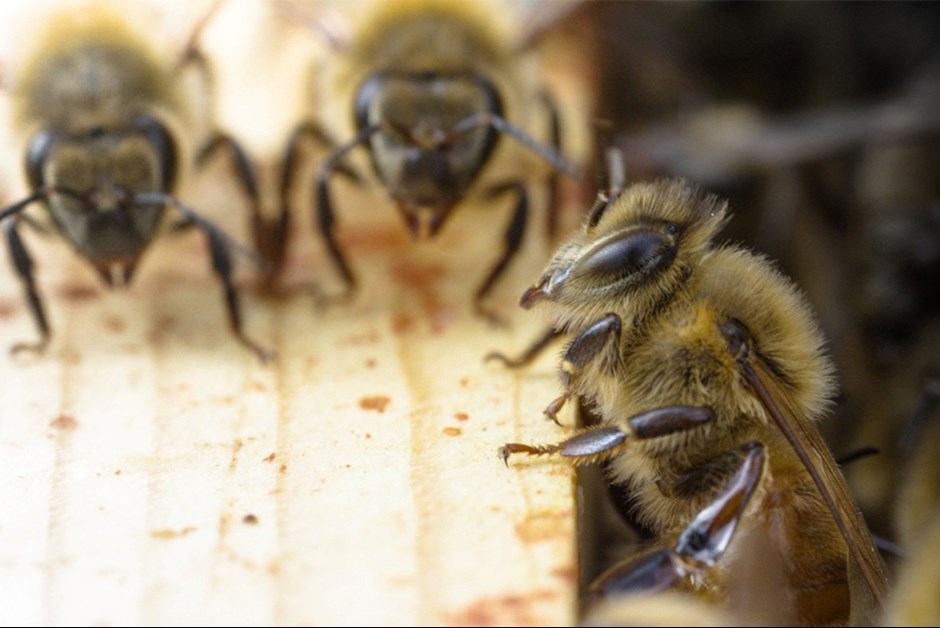STRUGGLES IN THE COLONY - THE BUZZ ON FAIRMONT BEES WITH BEE BUTLER MICHAEL KING (JUNE 2016)
Learn more about Fairmont Waterfront or make a booking.
The middle of June and 254 guests have visited our organic garden and the bee hives, learning about our initiatives in sustainability and the roles our bees play in that picture.
Today was a lucky day in some respects and an unhappy one in others. Upon an inspection this afternoon a visit to the apiary showed that the 4 main hives on the rooftop were active and it appeared that after 3 days of cooler and in some respects unseasonably lower than normal temperatures the bees were excited to have the chance to fly and forage for food again after being kept captive in their hives over the past 3 days. There were clouds of bees flying in and around the hives savouring the warm sunshine.
However a view of the observation hive showed a very different picture with rather significant loss of life both in the bottom of the hive and around the glass roof below the hive. What was causing this sudden precipitous drop off in population? Was it the sudden change of weather, disease, or a virus. Upon inspection it was clear that the hive had simply run out of food supply and as a result the bees were unable to sustain their numbers.
The solution was right in front of our eyes! All we needed to do was inspect one of the hives down below in the bee apiary and look for a frame of food. We quickly found one and we removed it, brushed the bees from it and brought it up to the observation hive. We removed the cover of the hive and opened it up and removed the empty frame on the bottom and replaced it with the frame full of capped and uncapped honey. We also placed 4 -5 blocks of fondant in the hives between the frames as an extra rich food source for them. Within a few minutes the bees had migrated to the food sources provided and were ravenously eating the food source to regain strength and provide food for the larva.
It took less than 3 days for the recent weather to undermine the strength of the small colony in the observation hive. On a larger scale in the real world, bees are faced with similar challenges when climate changes suddenly force colonies to rely on their built in food sources which if not significant, can bring the hive to the brink of death. Fortunately we were able to intervene and in all likelihood help bring them back to full health again in a few days.
Today we observed a bee population collapse due to starvation but we also witnessed something that might be even harder to reconcile which is that bees in a colony may well choose to die to save the colony. How that decision is made and which bees are sacrificed is impossible to know but it is clear that bees do not fight each other for food within the hive. There is enough food for only so many bees and after that bees will start to die while others will live and feed on whatever is still left in the hive but there is no fight for the food supply, no sudden rush to eat, no “me first” mentality.
We lost a few hundred bees today but their deaths may well have saved the remainder of the colony. A truly empathetic and selfless society at work. In the wake of recent events in the world this is a supremely profound lesson.
Learn more about our bees at: Fairmont Waterfront Green Hotel Initiatives
For more #BeeButler posts visit: Fairmont Buzz on Bees
#FairmontBuzz #BuzzOnBees #BeeButler #BeeSustainable
